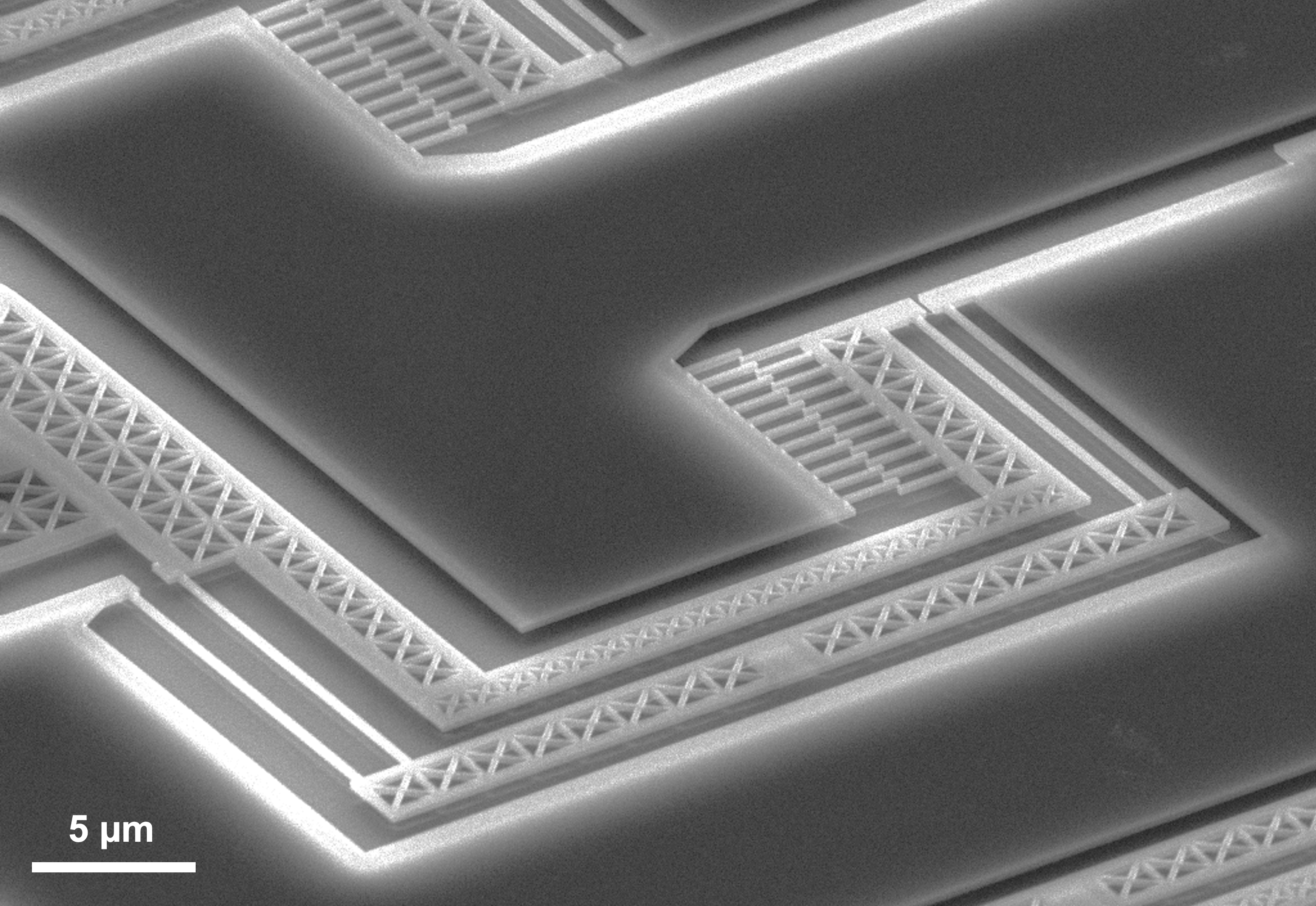Fundamental physics meet innovation at the deep nanoscale
In the Photonic Nanotechnology group at DTU Electro, we research silicon nanostructures fabricated with state-of-the-art electron-beam lithography and silicon nanomachining.

We aim to
bridge the gap between fundamental research and innovation. We believe that
some of the most exciting business ideas may come from studying deep science
and that the most profound research questions may appear in the course of
tackling real-world engineering challenges.
Recent
breakthroughs in semiconductor nanotechnology opens perspectives for building
devices with hitherto unexplored dimensions such as silicon bridges only a few
tens of atoms wide. In turn, this enables research spanning from fundamental
studies of new regimes of enhanced light-matter interaction for quantum
technologies to innovation projects with industrial collaborators towards green
and sustainable solutions for society.
The current
research in the Photonic Nanotechnology group includes fundamental
investigations of novel classes of photonic nanocavities based on silicon
bowties for realizing extremely small optical mode volumes, an innovation
project developing chip-scale spectrometers together with industrial partners,
research on engineering applications of nanoelectromechanical systems and
Casimir physics in photonics, and photonic topological insulators.
Rather than
being concerned with categorizing our research as either research or
innovation, we strive to create impact. And impact can come from inventing a
new nanodevice, developing a new numerical method, solving a complex integral,
doing an important measurement, or starting a company.
Restricting
our scope to silicon, which is the most advanced semiconductor material
available, enables us to explore a wide range of projects and concepts that
were beyond experimental reach just a few years ago. In addition, silicon is
also the material of choice in the semiconductor and photonics industries and
offers the shortest possible path from research breakthrough to innovation. A
major activity in the group right now is developing next-generation ultracompact
spectrometers based on our own patens. Such spectrometers may revolutionize
food spectroscopy, optical interrogation monitors, and much more.
Contact
Søren Stobbe Head of Section, Professor ssto@dtu.dk